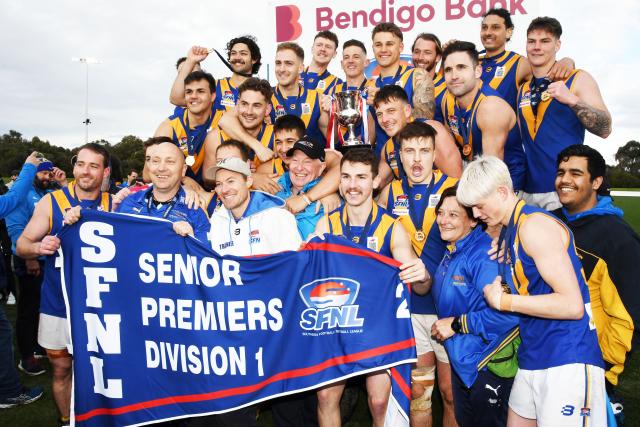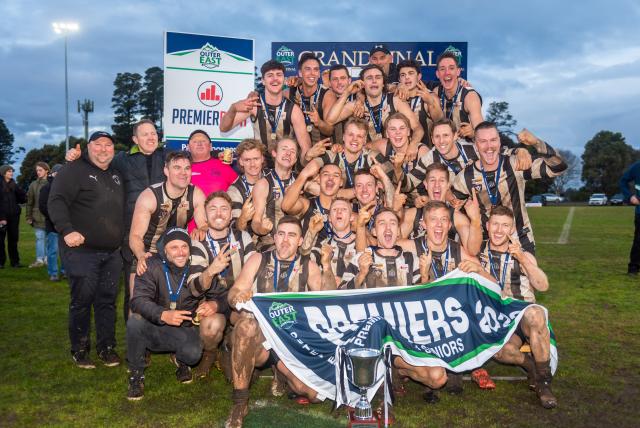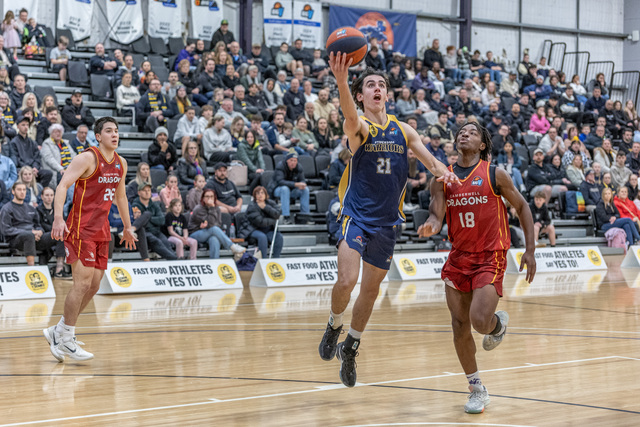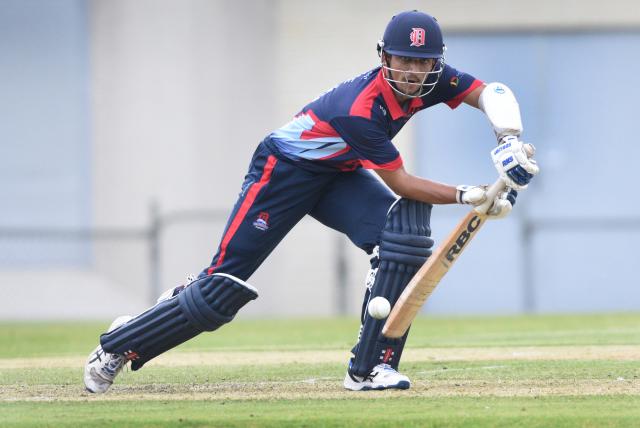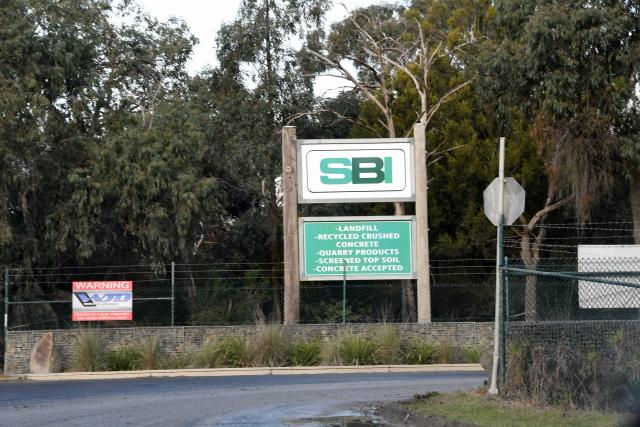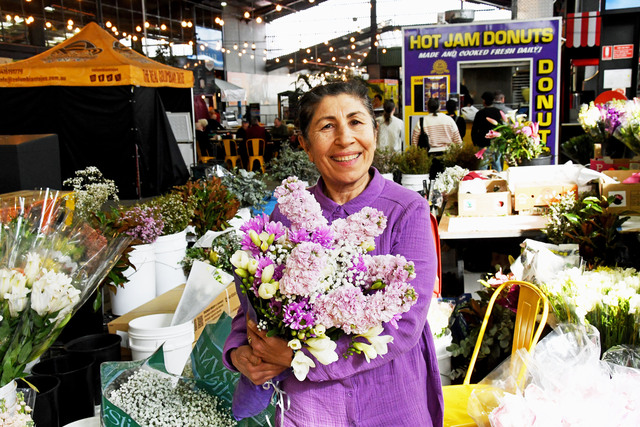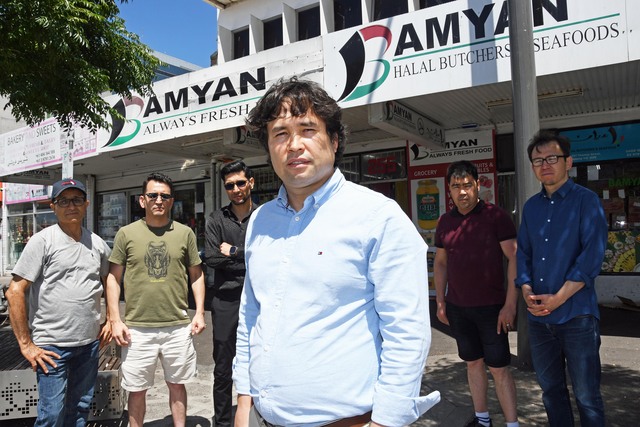For two long years, the end of year beers stayed undisturbed in the fridge.
Honour boards gathered dust and gained asterisks to explain the awkward chronological gap in the years after 2019.
Ice, used for both cooling drinks or filling plastic bags before being strapped or stuck to wounds in feats of amateur engineering, melted.
Centre-wicket areas didn’t become mud heaps that lurched between swamp and pavement, depending on the previous week’s weather patterns.
There was no kick-to-kick at the breaks, no listening to the three-quarter-time rev-up from coaches like Steve O’Brien looking for a spark from his chargers for the last half hour.
No hum of chatter in the grandstands, punctuated by the piercing crack of a beer can served by a local club volunteer in a fading club polo shirt or jacket from yesteryear, making sure everything is in order.
Sport can band a community together on so many levels.
In a country where professional soccer struggles for a foothold in the Australian sporting culture, Federation Square was bursting at the seams at ridiculous hours as fans crammed-in to watch the Socceroos take it up to global heavyweights at the 2022 FIFA World Cup.
On a smaller scale, it was replicated at the grassroots – with the bright red embers emanating from flares replaced by car horns from fans clutching a thermos of piping-hot instant coffee, parked around the ovals like Fox Road in Narre Warren North on chilly winter afternoons,
As devotees gathered under awnings and rusting tin roofs in puffer jackets and beanies, a wave of deep heat wafts across the outer, followed by the rattle of moulded studs on concrete and the slow rumble of cheers as the suburban gladiators made their way from backstage to the arena, in what was for almost everyone involved, the highlight of their week.
As Mike Brady reminds us every September, football’s such a part of this old town.
And in 2022, the return of a full season of local footy for the first time since 2019 was a reminder that life, as much as we could recall it, was returning to the norm.
In the outer South East of Melbourne, a trio of clubs marked their return to competition in the best way possible: an elusive grand final triumph.
The Eagles of Cranbourne went from kings of the sky to kings of division one of the Southern Football Netball League with a narrow six-point win over Cheltenham.
Champion full-forward Marc Holt has seen and felt a lot on the footy field across his 250-game career in blue and gold, but this year’s flag had that something extra.
When he kicked his third major of the Grand Final late in the third term, few would have anticipated that that would go on to be the sealer, and deliver the 38-year-old a second premiership.
“Personally it was probably the best feeling I’ve had in footy,” Mr Holt said of the victory.
“In 2011 we went undefeated and we were going to win that premiership, we didn’t really have a choice. In 2016 I broke my leg and missed out on that flag.
“I was going to retire maybe two years ago but I stuck at it. When the siren went it was a feeling I hadn’t felt before.”
When asked at what point he felt things had returned to ‘normal’, he pinpointed off-field events, such as club functions and Thursday night training sessions, rather than anything on-field.
“The first function, getting back to that side of it,” he said.
“I remember we had a really good turnout and from there got that feeling back. You got to see all the old boys who hadn’t been there for a couple of years, who might not have that much going on because they’re retired form work but they want to come down and watch the footy, so it was good to see the old heads down there this year who hadn’t been there for a while.
“I’ve been playing local footy for 20 years and Thursday nights with the boys, to break up the week is always a really good thing to have when you’re working hard.
“Some of your best mates are out there and if they’re not your best mates, they’re your good mates and you’ve known them for a while. We’re lucky that we retain most of our players every year.”
An icon of the game in the South East, Mr Holt accepted his premiership medallion to a chorus of “Holty” being chanted in the stands.
It would prove to ultimately be his final game, having made the decision to retire and spend more time with his young family.
“I’ve stepped back, I’m going to take a year off in 2023 and then in 2024 I’m looking at going into a proper coaching role.”
The Seagulls of Tooradin flew higher than anyone in the West Gippsland Football Netball League, ending a 25-year drought that carried more emotion than most.
Seagulls coach Lachie Gillespie played in a losing Grand Final for Tooradin back in 1999 as a 17-year-old but played a key role in ending the drought this year through more than just moving the magnets on the whiteboard.
While footy was at the mercy of the pandemic, he worked tirelessly to keep the squad connected and upbeat as possible in during a trying time on all levels.
“Some of the trades kept working, some couldn’t,” Mr Gillespie said.
“Some boys couldn’t see family members,”
“We tried to keep the tribe together and as positive as we could.
“It was hard work but very fulfilling that we all stuck-fat and I think that helped to galvanise the group when we came back.
“To go and see the players and give them a hug, we’re a pretty loving footy club. It was nice to have that human touch and give them a hug, have a laugh, make sure they’re okay.”
Those who have been involved with the club over the years will know that the Seagulls have suffered a great deal off the field with regards to the sad passing of a number of influential figures, such as former midfielder Beau Miller, who passed away in 2016 aged 34.
Earlier in the year, Mr Miller was recognised as the club’s best player from the last 25 years, in an emotional ceremony at the Tooradin Sports Club, where Mr Gillespie described him to Star News’ sports editor David Nagel as “a great human being more so than a great footballer” – high praise for a player who won two league medals during his time at the Seagulls.
The importance of family and community was on show throughout the year, with partners, parents, kids and more all welcome in the rooms post-game to soak in the celebrations after a win.
“When you play community sport it’s lovely to have all the connections with family and history,” Mr Gillespie said.
“From my point-of-view, having those connections, it was definitely more than just us out there on game day.
“I knew that they were going to support us and when we walked into those rooms, there was an energy and it was lovely to hear that.
“It’s not just about the 22 running around, it’s the whole community.”
At a sodden Gembrook Recreation Reserve for the Outer East Football Netball League Grand Final, it was Shane Dwyer tasked with steeling his Narre Warren warriors for a final foray.
Trailing by 21 points late in the third quarter, they cut the margin to two points at the last change, hitting the final term with the wind in their sales against Woori Yallock.
The Magpies had to overcome multiple obstacles on their way to a historic premiership, including an hour-long delay for lightning and thunder, on top of the three-quarter-time deficit.
For Club President Stuart Stephenson, it was the perfect way to cap the season that meant so much to so many.
“There were lots of easy excuses the players could have made, but they all got behind the coach and were able to wear-down Woori Yallock,” Mr Stephenson said.
“It was a great thrill because Shane Dwyer and most of administration staff had been involved for a long time. It was the result of a lot of hard work over the last three years.”
While Mr Stephenson said there was never a stage where there was genuine concern or the future of the club during the lockdowns, it was not knowing what was coming next that was the hardest aspect.
“We were in a good position and hopeful that when footy and netball came back, if we treated our people well, they would come back,” he said.
“Normally a club brings people together and is a great outlet for young people and the centre of a community.
“We had to keep them involved even though they couldn’t see each other in-person. We had some people really proactive in doing things though socials to stay involved, things like picking best-ever teams and trivia sessions, I think helped keep connections.“
Volunteers like Mr Stephenson are the backbone of any local sporting club and there are a few at the Magpies that have firmly ensconced themselves within their nest.
Two that immediately came to mind for the President of the last six years were canteen manager Maree Parnall and the club’s secretary, Sonya Alexander.
“For a lot of (our volunteers), they were suffering the same issues that the players were. They were missing being part of the club and the community.
“Maree does a mountain of work and Sonya organises the social functions and the hard administration work while other roles get on with the business of football. She does the jobs no one else wants to do.
“We’ve had similar volunteers for a number of years particularly in canteen and bar, which are critical areas. Those people there mean so much to club.”
The sentiment was echoed by Mr Gillespie.
“People need to understand how critical (local sport) is. When it’s taken away from you, the sport comes second but community aspect is primary, and there are so many volunteers who give up so much time.
“They all care and they’re all passionate and were very grateful to have them.”
With pre-season well-underway, here’s to another successful year in 2023.


